Why Atheists Change Their Mind: 8 Common Factors
by Matt Nelson
Filed under Atheism, Conversion

Conversions from atheism are often gradual and complex, no doubt. For many converts the road is slow and tedious, tiring and trying. But in the end unbelievers who find God can enjoy an inner peace that comes from a clear conscience in knowing they held to truth and followed the arguments faithfully. Of course not all converts from atheism become Christian or even religious. Some converts only reach a deistic belief in God (an areligious position that God is “impersonal”) but the... Read More
Can Victims of Cannibals be Raised from the Dead?
by Matthew Allen Newland
Filed under Heaven
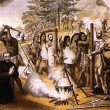
Last summer I had the pleasure of writing my first article for Strange Notions, on the topic of bodily resurrection. Some time later, I came across a discussion group on another blog that happened to be focused on my article! Naturally intrigued, I took a few minutes to look around and read what the readers there had to say. It was nothing good. Among the snarky remarks was this gem: "I had fish for lunch. I wonder which of us is going to get resurrected from our (now shared) atoms." Today... Read More
Answering 5 More Common Objections to the Resurrection
by Dr. Peter Kreeft
Filed under The Resurrection

NOTE: Christians around the world celebrated Good Friday and Easter last week, which commemorate the death and resurrection of Jesus Christ. Thus we began a six-part series on these events by Dr. Peter Kreeft in which he examines each of the plausible theories attempting to explain what happened to Jesus at the end of his life, particularly whether he rose from the dead. Part 1 - 5 Possible Theories that Explain the Resurrection of Jesus Part 2 - Rejecting the Swoon Theory: 9 Reasons... Read More
From Atheist Professor to Catholic: An Interview with Dr. Holly Ordway
by Brandon Vogt
Filed under Atheism, Conversion, Interviews
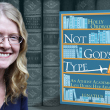
Growing up, Holly Ordway was convinced God was little more than superstition, completely unsupported by evidence or reason. She later attained a PhD in literature, traveled the country as a competitive fencer, and became a college English professor, none of which left room for God. But one day a smart and respected friend surprisingly revealed he was a Christian. That sent Holly on a search for the truth about God, one that weaved through literature, aesthetics, imagination, and history.... Read More
Does the Shroud of Turin Prove God?
by Fr. Dwight Longenecker
Filed under The Existence of God, The Resurrection
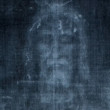
I've written here at Strange Notions in the past about miracles and skepticism, and about the greatest miracle claim of all, Jesus' resurrection from the dead. Such miracles serve as arguments for God’s existence, but not philosophical arguments based on design, prime movers, etc. They are based on physical, historical evidence. The arguments go like this: If atheistic materialism is true, then the natural world must be a closed system. Everything must be explained within that closed... Read More
Did the Accounts of Jesus Evolve?
by Joe Heschmeyer
Filed under Historicity

Biblical skeptics often surmise that the earliest New Testament books tell a very different story than the later books: that the story of Jesus grew with time, becoming more and more incredible, and less and less historical. In other words, the New Testament evolved from history to religious mythology. Recently, I've seen this argument raised about both the Resurrection and the divinity of Christ. First, retired Episcopal Bishop John Shelby Spong (who denies the Resurrection) attacked... Read More
Did Jesus Really Rise from the Dead?
by Fr. Dwight Longenecker
Filed under The Resurrection
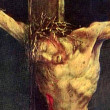
Last week I wrote a post here on David Hume, miracles, and the resurrection of Jesus. Some of the commenters took issue with my claim that "all the alternatives to the fact of the resurrection of Jesus Christ from the dead are more incredible than the miracle." I'd like to elaborate on that here. Christians claim that the historical human being Jesus of Nazareth was executed then physically rose from the dead and stayed alive. He was seen by many people and then was seen to vanish into... Read More
David Hume, Miracles, and the Resurrection
by Fr. Dwight Longenecker
Filed under The Existence of God, The Resurrection
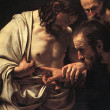
Most Catholics and atheists agree that if God does not exist, then the material world must be a closed system. If there is no God, the world is self-creating and self-reliant. If there is no God, then there cannot be interruptions in nature. The material world works according to the laws of physics, and even if there are mysteries that cannot presently be explained, they will be one day. In fact, if there is no God, then the physical world must work according to the laws of nature and... Read More
Quantum Physics and Bodily Resurrection
by Matthew Allen Newland
Filed under Science, The Resurrection

The Question In the year 587 BCE, the Babylonians destroyed Jerusalem and brought many of the Jews back home as captives. Among them was the prophet Ezekiel. During this dark period of Israel’s history, God promised Ezekiel that Israel would rise again. We can read about it in the Book of Ezekiel, where God leads His prophet out to a battlefield in a valley, strewn with the dry, dusty skeletons of Jerusalem’s fallen army. There, God makes Ezekiel a strange request: He tells... Read More
No Naysayers at NASA: Responding to Bob Seidensticker
by Fr. Dwight Longenecker
Filed under Historicity

EDITOR'S NOTE: This post from Fr. Dwight Longenecker is in response to atheist Bob Seidensticker's post yesterday titled 10 Reasons to Just Say Nay to the Naysayer Hypothesis. Atheist Bob Seidensticker has a quip at the bottom of yesterday's blog post which reads, “If a million people say a foolish thing it is still a foolish thing.” I couldn’t agree more, and we should remember this as we read the rest of his post. His basic argument is this: “Apologists tell us... Read More






